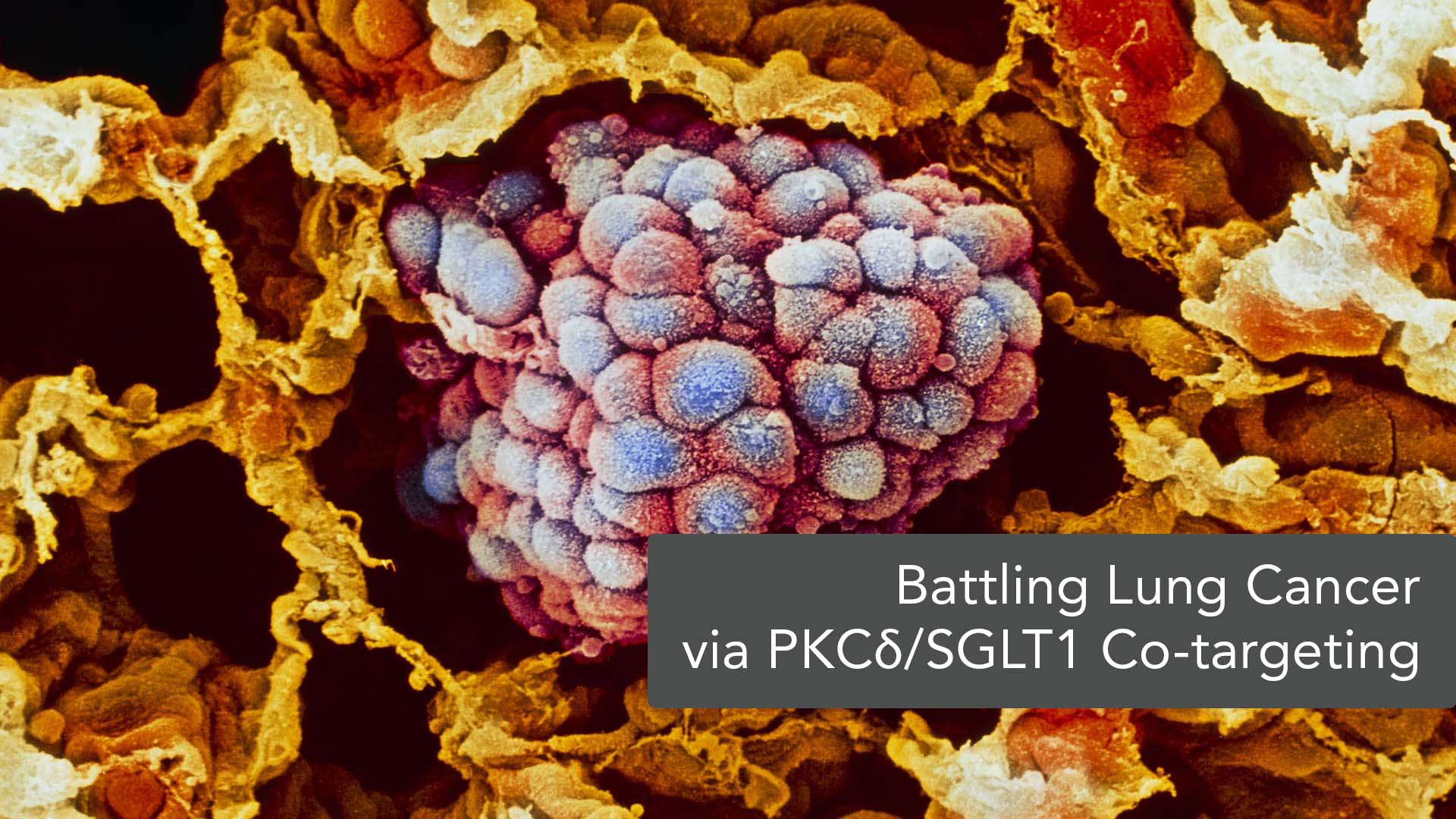PKCδ/SGLT1 Co-targeting for Improved Therapeutic Efficacy of EGFR TKIs in NSCLC Patients

The Novelty
This study provides strong evidence that glucose metabolic re-wiring may contribute to the development of acquired resistance of non-small cell lung cancer (NSCLC) to epidermal growth factor receptors tyrosine kinase inhibitor (EGFR TKIs). The findings suggest that NSCLC cells with acquired EGFR TKI resistance are more tolerant to low glucose-induced autophagy following a metabolic shift to higher glucose uptake and glycolysis activity due to upregulation of active sodium/glucose co-transporter 1 (SGLT1) by Thr678-phosphorylated EGFR, in a protein kinase C delta (PKCδ)- dependent manner. Therefore, the combination of SGLT1 inhibitor with EGFR TKIs shows a synergetic effect in reducing tumor growth and glucose uptake in vitro and in vivo. Future studies can be conducted to determine if hormone receptors are involved in the regulation of SGLT1 expression in lung cancer tissues.
The Background
EGFR, a membrane-bound tyrosine kinase receptor, has been found to be a critical oncogene in promoting tumorigenesis, mitogenesis, and tumor progression of various cancer types, including NSCLC. Small molecule tyrosine kinase inhibitors (TKIs) targeting the ATP-binding pocket of the EGFR kinase domain were developed and approved for NSCLCs. However, the secondary EGFR mutations and activations of alternative receptor tyrosine kinases (RTKs) created a bypass track, leading to the failed responses to EGFR TKIs, yet fail to fully account for the development of acquired resistance to these drugs in NSCLC patients. Mounting evidence has proved that EGFR impacts the rewiring of the glucose metabolic network to promote tumor progression in NSCLC. Therefore, this study aims to understand the glucose metabolic re-wiring pathway in NSCLC patients with acquired EGFR TKI resistance. The findings would potentially be used to explore an effective treatment strategy against EGFR TKI resistance.
The SDG Impact
Approximately 85% of lung cancers are recognized as NSCLC. Mutations lead to EGFR amplification and overexpression and have been associated with NSCLC progression. Inhibitors targeting EGFR tyrosine kinase activity were used to block the downstream signaling pathway and showed promising therapeutic efficacy. Unfortunately, most patients with NSCLC who are treated with these drugs develop resistance. Much evidence has proved that EGFR promotes tumor progression by rewiring glucose metabolic networks in NSCLC. By identifying the biological mechanisms that associate glucose metabolic re-writing pathway with NSCLC treatment resistance, this study expands the possibility of increasing the effectiveness of the existing treatment. Ultimately, the proposed combination of SGLT1 inhibitor with EGFR TKIs would serve as a new therapeutic strategy to reduce the mortality rate of patients with NSCLC (UNSDG 3: Good Health & Well-Being).
